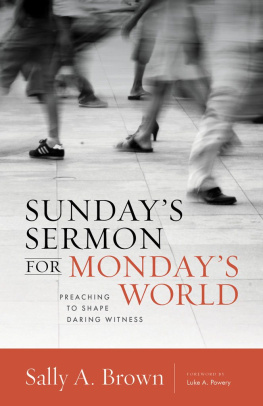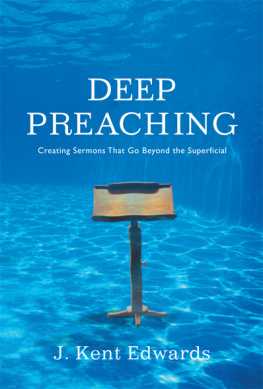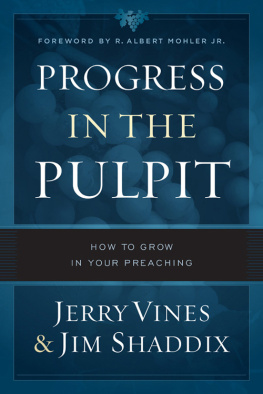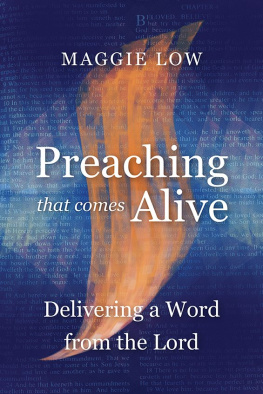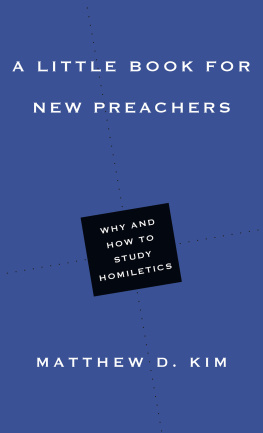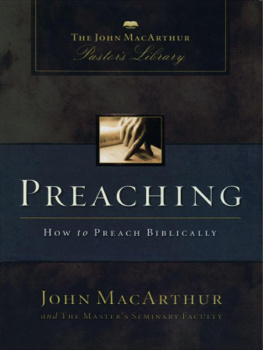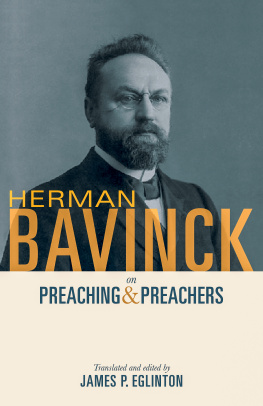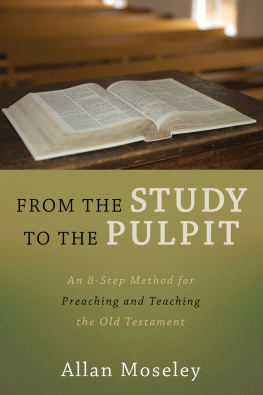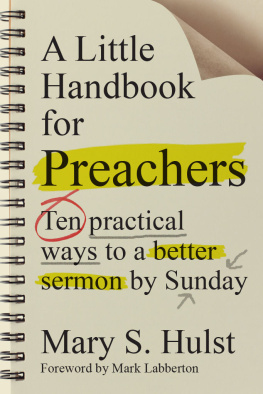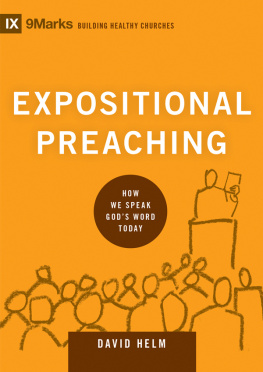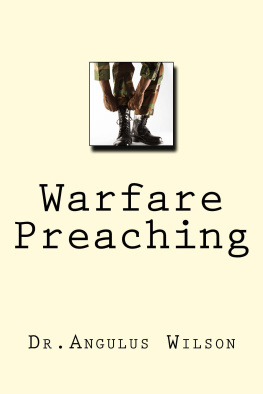THE GOSPEL AND OUR CULTURE SERIES
A series to foster the missional encounter of the gospel with North American culture
John R. Franke
Series Editor
Recently Published
Michael Barram, Missional Economics:
Biblical Justice and Christian Formation
Craig Van Gelder and Dwight J. Zscheile, Participating in Gods Mission:
A Theological Missiology for the Church in America
Michael W. Goheen, ed., Reading the Bible Missionally
Stefan Paas, Church Planting in the Secular West:
Learning from the European Experience
Darrell L. Guder, Called to Witness: Doing Missional Theology
Michael J. Gorman, Becoming the Gospel: Paul, Participation,
and Mission
For a complete list of published volumes in this series,
see the back of the book.
Sundays Sermon
for Mondays World
Preaching to Shape Daring Witness
Sally A. Brown
WILLIAM B. EERDMANS PUBLISHING COMPANY
GRAND RAPIDS, MICHIGAN
Wm. B. Eerdmans Publishing Co.
4035 Park East Court SE, Grand Rapids, Michigan 49546
www.eerdmans.com
2020 Sally A. Brown
All rights reserved
Published 2020
262524232221201234567
ISBN 978-0-8028-7112-1
eISBN 978-1-4674-5813-9
Library of Congress Cataloging-in-Publication Data
Names: Brown, Sally A. (Sally Ann), author.
Title: Sundays sermon for Mondays world : preaching to shape daring witness / Sally A. Brown.
Description: Grand Rapids, Michigan : William B. Eerdmans Publishing Company, 2020. | Series: The gospel and our culture | Includes bibliographical references and index. | Summary: Equips preachers to design sermons to inspire believers to act with improvisational, creative courage in the ordinary settings of their Monday-to-Saturday livesProvided by publisher.
Identifiers: LCCN 2019044546 | ISBN 9780802871121 (paperback)
Subjects: LCSH: Preaching.
Classification: LCC BV4211.3 .B763 2020 | DDC 251dc23
LC record available at https://lccn.loc.gov/2019044546
In honor and memory of
Peter Townsend Dunbar
(March 23, 1943May 10, 2016)
companion of my soul for twenty-nine years
Donald Van Arsdale Brown
(September 29, 1920July 16, 2016)
my father,
a model of faith, gentleness, and generosity
Contents
Preaching may have lost some of its so-called authority over the years, but it has not lost its (trans)formational power. From storefronts to neogothic liturgical spaces, preaching still lives every Sunday across the globe as sermons travel out from pulpits into the lives and hearts of the listeners in the pews. Even as we continue to hear the mantra the church is dying, one thing is for surethe Word of God is not dead. The Word is resurrecting not only in church seats but on societys streets, whether we recognize it or not. Just as Jesus, the living Word, became flesh and lived among us (John 1), the proclaimed Word takes on our human flesh every Sunday as we witness to the gospel of Jesus Christ every Monday in the world. The Word preached in our sanctuaries is embodied on the streets because the Word cannot be divided, though this may not always be evident.
This means that, as Sally Brown argues, Sunday sermons are a public formational discourse that have public impact as they shape the lives of hearers for daring witness in Mondays world. In the power of the Spirit, Sunday is linked to Monday and the other days of the week, such that there is continuity and congruity between what is preached and what is lived. Truly, the Spirit aims for the integrity of preaching, which means for Christians there is really only one Word in the church and the world: not a Sunday Word and a Monday Word, but an everyday Word, whole and holy.
What this book urges readers to consider is how the sermon is lived as a public witness that testifies to the radical mercy, inclusive Augustine offers an implicit challenge to speakers to walk the talk Sunday to Sunday; the same is true for all hearers of the gospel.
But we, as preachers, are challenged to ponder not only how well we whoop in the pulpit but also how well we help our surrounding communities. We are challenged to view preaching much more holistically, connected to the everyday life of Christian witness, and reflect on how we preach with our lives, not only in creeds but in deeds. In this way, our lives would be the amen to the proclamation on our lips, causing Christian preachers to truly reach the height of eloquence with the fusion of our rhetoric with our ethic. Brown, in Augustinian fashion, invites us to see eloquent preaching as a practice, not only in a pulpit but also enfleshed through justice, mercy, and love in the world.
A (trans)formational understanding of preaching does not mean that congregations cannot be malformed. This happens when Christians speak and act in ways that are in opposition to the life and work of Jesus Christ. Of course, malformation may not be totally a sermons fault because other influences could be at play. Nonetheless, we should be mindful that preaching has caused oppressive terror throughout history. But this historic reality does not negate the grace and good that have flowed from pulpits too. Preaching, indeed, has caused redemptive works of mercy and justice in the world.
This may seem to be too high of a calling for the ministry of preachingto (trans)form others for daring witness in the world. Yet it is high because Jesus is high and lifted up, drawing us into the cruciform hope of God. It is high because preaching should always be a practice of resurrection, lifting others up out of a miry clay. It is high because it is rooted in a deep hope grounded in Gods redemptive promises for all of creation. And hope does not disappoint (Rom. 5), which is why preaching continues to happen every Sunday in the power of the Spirit. Preachers continue to hope in God, while in fact preaching is a sign that God still has hope in the church and has not yet given up on us.
All of this is weighty in nature because life is weighty. Life and death are always in the balance when it comes to ministry, including preaching. All of this is weighty because we are dealing with Gods incarnate glory, meaning something holy and heavy is at stake when we preach. Life and death are at stake.
The weight of it all should be obvious from the very beginning of this fantastic book. The dedication page is penned in love to two significant men in Browns lifeher deceased husband and deceased father. Because of this, we know this book is not just another theological and theoretical treatise on preaching. It is a love letter to the saints who have gone home in faith and for a God who offers the gift of redemptive life through the ministry of preaching every Sunday. The dedication page implies that preaching is a matter of life and death. This writing cost Brown something. It squeezed life and love out of her pen such that we get a glimpse of the love, justice, and hope of God in preaching on Sundays for Mondays world. I hope your reading costs you something too, at least the transformation of your preaching life.
Luke A. Powery

. Saint Augustine, On Christian Doctrine, trans. D. W. Robertson Jr. (orig. circa 396426; Upper Saddle River, NJ: Prentice Hall, 1958), 16466.
. In his Lyman Beecher lectures, James Forbes says this was true of Jesus; published as The Holy Spirit and Preaching (Nashville: Abingdon, 1999).
Every author is aware that her creative efforts are group projects, although only a handful of those whose support makes the difference between success and failure know theyve been on the team. I am grateful to countless friends and family members, Princeton Theological Seminary colleagues, colleagues in the Academy of Homiletics, and many doctoral students, who discussed the ideas in this book with me (whether they realized it or not) and sparked my interest in authors I might otherwise have bypassed.

